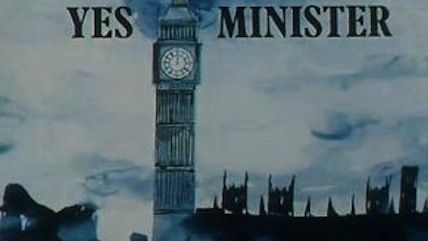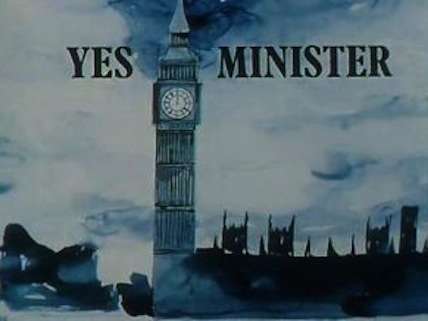Friday A/V Club: Bureaucratic Comedy
In Memoriam: Antony Jay, co-creator of Yes, Minister


The real divide in politics pits the people who think government looks like The West Wing against the people who think it looks like Yes, Minister. The soaring principles of The West Wing did sometimes turn up in Yes, Minister (and its sequel, Yes, Prime Minister), but by the end of each half-hour they had usually been buried in a committee or snuffed out in a seedy bargain. The result may not have been an inspiring vision of good government, but it was one of the wittiest TV shows of the 1980s; this week, sadly, saw the death of Antony Jay, the British broadcaster who co-created and co-wrote it.
Jay was a man of the right; his writing partner, Jonathan Lynn, hailed from the left. They nonetheless worked well together, perhaps because the specific policies that popped up on their two shows barely mattered. Yes, Minister and Yes, Prime Minister aired their share of topical jokes, and sometimes they expressed explicit political preferences (usually but not always libertarian-leaning). But the heart of both programs wasn't any particular policy agenda. It was the underlying mechanics of government: the ways a bureaucracy perpetuates itself and the places a reform can go to die.
The setup was simple: A somewhat well-meaning but basically spineless politician takes command of the Department of Administrative Affairs, and the department does everything it can to keep him from changing anything. (Yes, Prime Minister kept the basic formula in place, but now he had the entire British government to deal with.) Early in the first show's run, the viewer is primed to sympathize with the minister and to cheer his occasional reformist victories, but with time he comes to represent a different sort of social malady—a man willing to do virtually anything for votes and publicity, just as the bureaucrats he locks horns with are willing to do virtually anything to maintain the status quo. The two shows' 38 episodes, which ran from 1980 to 1988, sometimes feel like a public-choice textbook in sitcom form, with characters happy to spell out the venal rationales for everything they do.
That may sound didactic, and I suppose it was; with another cast the shows might not have worked at all. (A recent attempt to revive the franchise with new actors was a bust.) Fortunately, Jay and Lynn had a terrific cast, particularly Paul Eddington as the bumbling minister and Nigel Hawthorne as his Machiavellian sparring partner from the civil service. Hawthorne could make the most didactic dialogue into something musical, and Eddington's facial expressions alone could be as funny as the shows' sharpest lines. The two actors had perfect chemistry, even if their characters didn't.
Below you'll find "The Challenge," a Yes, Minister episode that originally aired in November 1982. It's solid throughout, but I picked it because it includes one of my favorite scenes in the series, in which Hawthorne explains to Eddington the real reason Britain has nuclear weapons. You should watch the whole thing, but if you just want to see that exchange, it runs from the 11:35 mark to about 12:30. It's not just a funny moment in itself, but a setup for the funniest moment of all, which comes shortly after 15:30:
(For past installments of the Friday A/V Club, go here.)


Show Comments (25)